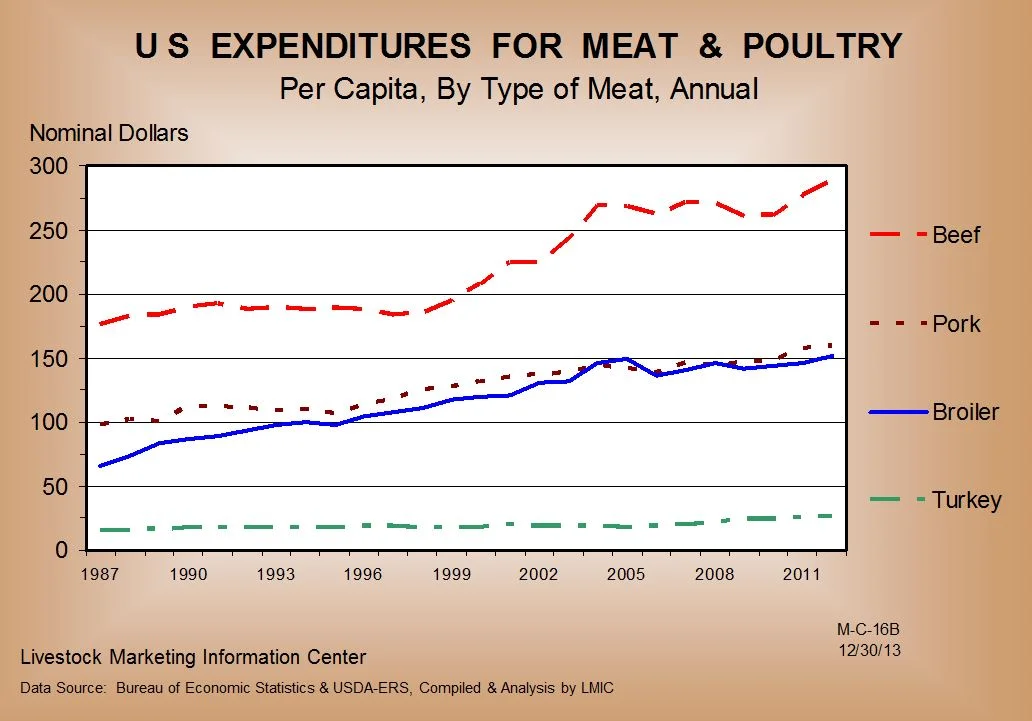Over at the food policy blog, Parke Wilde takes issue with my answer to a question from Dan Koontz at the Casual Kitchen blog. Or perhaps the issue is that Dan asked the question? Or, perhaps that I didn't mention Michelle Obama in my answer?
Parke makes a good point that many folks, including the first lady, advocate personal responsibility. Indeed, the Let's Move! campaign seems as clear a sign as any that Mrs. Obama is encouraging folks to get off their duffs.
But, Parke also seems to insinuate that somehow this discussion of personal responsibility is aiming at a straw man or lining up and knocking down carnival dolls as Parke puts it. As if there aren't people out there who use the "lack of personal responsibility" premise as motivation for public policy. Thus, it might be useful to share a segment from a paper I co-authored in the journal Appetite:
Consumer activist groups and many public health professionals, on the other hand, have repeatedly argued that individuals are powerless to stop the rising tide of obesity; that forces outside their control (in other words, environmental factors) are to blame and are in need of constraint. The following quotations are illustrative of this viewpoint:
•“The obesity crisis would not be solved by treating it as a personal failing on the part of those who weigh too much… We must realize that our predicament cannot be solved through individual action alone.” David Satcher, 16th Surgeon General of the United States (Levi, Segal, & St. Laurent, 2011).
•“Obesity is not merely a matter of individual responsibility. Such suggestions are naive and simplistic.” Bruce Silverglade, Center for Science in the Public Interest (Silverglade, 2004).
•“We’ve got to move beyond personal responsibility.” Margo Wootan, Center for Science in the Public Interest (Balko, 2004).
•“If only it were that simple. The harsh reality is that millions of Americans can’t be trusted to look after their own well-being.” David Lazarus, consumer columnist, Los Angeles Times (Lazarus, 2012).
•“Everyone talks about personal responsibility, and that won’t work here... These are things that have to be done at a governmental level, and government has to get off its ass.” Robert Lustig, pediatric endocrinologist, University of California at San Francisco (Allday, 2012).
These are hardly straw men or women.
By the way, the title of that paper in Appetite is "Who is to blame for the rise in obesity", and our nationwide consumer survey revealed the following:
Eighty percent said individuals were primarily to blame for the rise in obesity. Parents were the next-most blameworthy group, with 59% ascribing primary blame. Responses fell along three dimensions related to individual responsibility, agribusiness responsibility, and government-farm policy. A number of individual-specific factors were associated with perceptions of blame. For example, individuals with a more statist score on the economic political ideology scale were more likely to blame the government and agribusiness for obesity.
Now, back to Parke's point.
Do some food companies use a "personal responsibility" mantra to try to avoid regulation. You bet. But, do some food activists do the reverse to advocate for regulation?
Which is worse?
I think there is a problem with the message of many in the food movement on this issue. It is contradictory and undermines people's volition. For example, In Michael Moss's book Salt, Sugar, Fat he concludes by saying:
They may have salt, sugar, and fat on their side, but we, ultimately, have the power to make choices. After all, we decide what to buy. We decide how much to eat.
So, there we have it. Moss apparently advocates personal responsibility.
But, didn't Moss just spend the preceding ~300 pages trying to convince us that our food choices are out of our control - that we are "hooked" - and that we are little match for the teams of scientists and advertisers employed by Big Food? The implicit implication seems to be that consumers need a more powerful third party - the government - to constrain Big Food - because these are matters beyond our control.
That's a story of helplessness - of victimization. And whether they mean it nor not, narratives such as this can be demotivating.
To advocate people take personal responsibility for their food choices - as I have - is a message of empowerment.
Parke is right that some of the "food police" also encourage (and practice) personal responsibility, but I contend that much of their writing and their policy advocacy undermines their own message.


